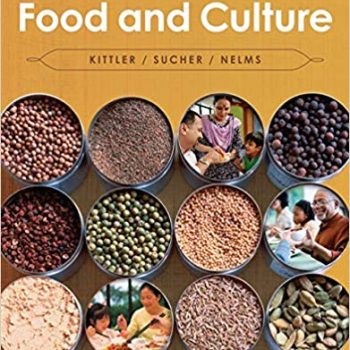What is Food & Culture?
Food & Culture explores the intricate relationship between food, culinary practices, and cultural traditions. This field examines how food influences cultural identity, social practices, and historical development. It encompasses the study of food habits, dietary customs, food production, and the symbolic meanings of food in different cultures.
Importance of Food & Culture
Understanding Food & Culture is crucial for appreciating the diversity and richness of human societies. It provides insights into the cultural significance of food, the impact of globalization on culinary traditions, and the ways in which food shapes social interactions and cultural heritage. Studying this field helps preserve traditional food practices and promotes cultural awareness and appreciation.
The Subfields of Food & Culture
Culinary Traditions
Culinary Traditions focus on the historical and cultural development of food practices in different societies. This subfield examines traditional recipes, cooking methods, and the cultural significance of various cuisines.
Food and Identity
Food and Identity explore how food choices and dietary practices reflect and shape individual and group identities. This subfield includes the study of ethnic cuisines, religious dietary laws, and the role of food in cultural expression.
Food Production and Sustainability
Food Production and Sustainability examine the processes of growing, harvesting, and distributing food. This subfield emphasizes sustainable practices, the impact of agriculture on the environment, and the challenges of feeding a growing global population.
Globalization and Food
Globalization and Food study the impact of global trade and cultural exchange on food practices and culinary traditions. This subfield includes the analysis of food markets, international cuisines, and the spread of food cultures across borders.
Food and Social Practices
Food and Social Practices investigate the social aspects of food consumption, including dining customs, food rituals, and the role of food in social gatherings. This subfield explores how food facilitates social bonding and cultural continuity.
Benefits of Studying Food & Culture
Economic Benefits
A strong understanding of Food & Culture opens up career opportunities in fields such as culinary arts, food writing, cultural anthropology, and hospitality management. Professionals in this field contribute to the preservation of culinary heritage and the promotion of cultural tourism.
Cross-disciplinary Subject
Food & Culture intersects with fields such as history, anthropology, sociology, and environmental science. This interdisciplinary approach enhances analytical skills and provides a comprehensive understanding of the cultural, social, and environmental dimensions of food.
Curiosity
Studying Food & Culture satisfies a natural curiosity about the diverse ways in which food is prepared, consumed, and valued around the world. It encourages exploration and appreciation of different culinary traditions and cultural practices.
Career Growth
Food & Culture education provides a solid foundation for career advancement. It equips individuals with the knowledge and skills needed for roles in culinary innovation, food research, cultural preservation, and international food trade. Advanced studies in this field can lead to specialized positions and opportunities for significant contributions to the understanding and appreciation of food cultures.
Test Bank Archive
At Test Bank Archive, we offer a wide range of resources to support your studies in Food & Culture. Our collection includes detailed test banks and solution manuals for various textbooks. These resources provide:
- Targeted Exam Preparation: Practice questions that mirror the style and difficulty of your exams, boosting your confidence and readiness.
- In-Depth Explanations: Detailed solutions that help clarify complex cultural and culinary concepts.
- Up-to-Date Content: Regular updates to ensure alignment with current academic standards and curricula.
Our test bank resources are designed to help you excel in your Food & Culture courses by providing structured, effective study tools.
Conclusion
Food & Culture is an essential field that enhances our understanding of the connections between food, society, and culture. By thoroughly preparing for your courses and utilizing the extensive test bank resources at Test Bank Archive, you can enhance your knowledge, improve your academic performance, and succeed in exploring the rich and diverse world of Food & Culture. Start exploring our resources today and take a significant step towards mastering this fascinating field.
Showing the single result

